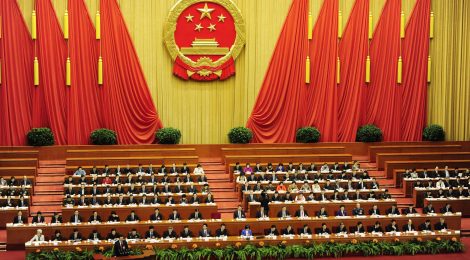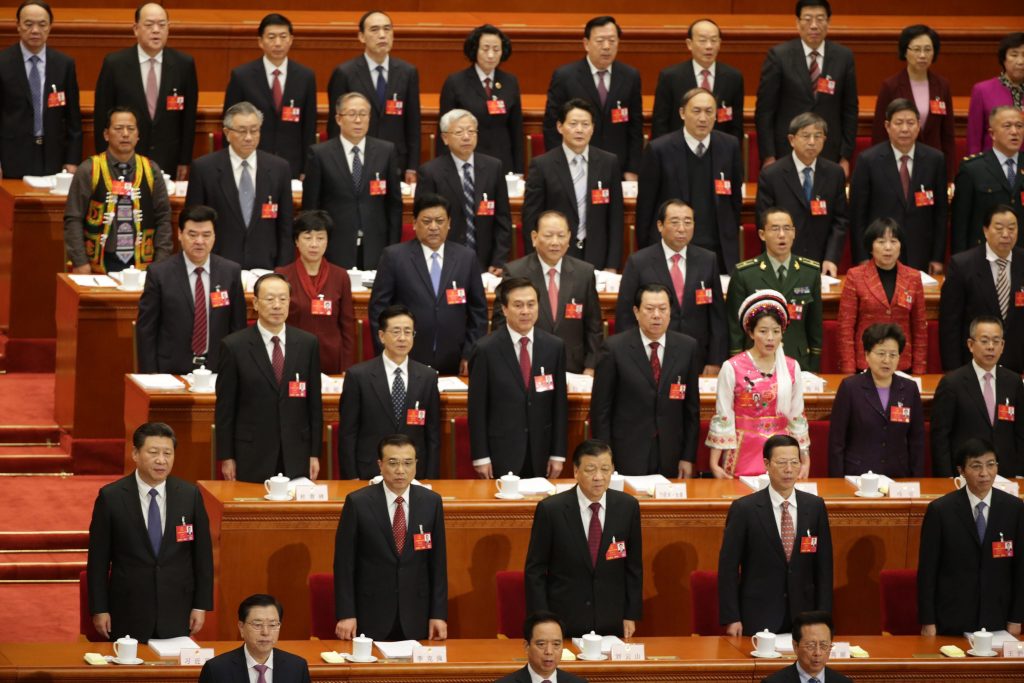
China’s “Two Sessions”: towards a renewed Civil Code
Between the 5th and the 15th of March, the National People’s Congress (NPC) and the Chinese People’s Political Consultative Conference (CPPCC) gathered in their joint annual sessions, referred by the Chinese media as lianghui (两会), the “two-sessions.” While the NPC is China’s top law-making body, corresponding formally to a parliament, the CPPCC is its top advisory organ, composed of a wide range of groups and political identities, from the eight minor parties within the United Front to other social organizations and independent members, united under the leadership of the CCP.
During the 2017’s lianghui, the two assemblies discussed the annual economic and social plans, appraised the work report of the government and other top organs, approved the national and local fiscal budgets, and the procedures for the election of the 13th NPC (2018-2023) deputies. However, one of the most important issues at stake has been the reform of the country’s much-discussed civil law. After a long process of proposals and revisions, the NPC approved the final draft of the General Provisions of a new Civil Code. The Provisions will come into effect on the coming October 2017, inaugurating a historical phase of legal reforms. Several topics are included in the new Civil Code, ranging from contracts, properties, personal liability, and family relations (such as inheritance and marriage).
In order to frame the importance of this long-awaited reform, we have interviewed Dr. Ivan Cardillo, Tenured Lecturer in law at Zhongnan University of Economics and Law, Law School, (Wuhan PR. China).
Galilei Institute: Dr. Cardillo, what are the most important innovations and implications of the freshly-approved General Provision?
Dr. Ivan Cardillo: The General Provisions, or General Part of the future Civil Code of China, is a big step for China towards a systematization of the civil law rules. The aim of the future Civil Code of China is to write an “encyclopedia of social life”, borrowing the definition from the instructions to the draft. In this regard the most important innovations for me concern the inheritance rights for the fetus, the Good Samaritans rule, the protection of personal information, the rules on defamation of national heroes and martyrs, the rules for the definition of legal subjects.
GI: The final version of the draft went through more than 120 revisions (China Daily). What are in your view the main challenges for the NPC in carrying out this legal renovation project?
IC: The NPC is composed not only by legal scholars. Many members carry in the legislative debate personal opinions which reflects the wishes of the people. This is an advantage which prevent the highly technical legal language from losing the contact with the ordinary language, but at the same time it can slow down the legislative process.
GI: Why a renewed Civil Code is important in China’s current stage of development and social transformation?
IC: The Civil Code will restate the entire regulation of civil law. Many rules are written in judicial interpretations, SPC opinions, guiding cases. This situation creates misunderstandings and confusion. The Code will solve many conflicts of laws. This will be very beneficial for the citizens to understand which regulations to use, to reduce conflicts, and speed up the development. The Good Samaritan rule is crucial for building a new solidarity among the people.

GI: Is China’s Civil Code influenced and attuned to the Confucian ethic or it is moulded on Western canons?
IC: This is the biggest issue of the Civil Code. Chinese legal scholars have different opinions. The general aim is that the Civil Code should be able to express the identity of Chinese culture, the “spirit of Chinese people”. Concepts like harmony, filial piety, virtue are deeply rooted in the tradition and in the actual legal debate. How to define them using modern legal categories is still an open issue.
GI: How does the civil code and, more in general, the wider legal system fit into the centuries-long dialogue between China and the West?
IC: The Chinese legal system has always been accused to be a barbarian one. Back to the middle of the XIX century, the Western colonialist powers forced China to sign agreements to limit its own sovereignty and accept the application of Western Laws in disputes where Western People were involved. From that day till now the Chinese legal culture is trying to compromise the need of reception of Western legal models with the need of an endogenous modernization. The march towards a Civil Code is an important achievement for China, to prove its ability to modernize its legal system.




